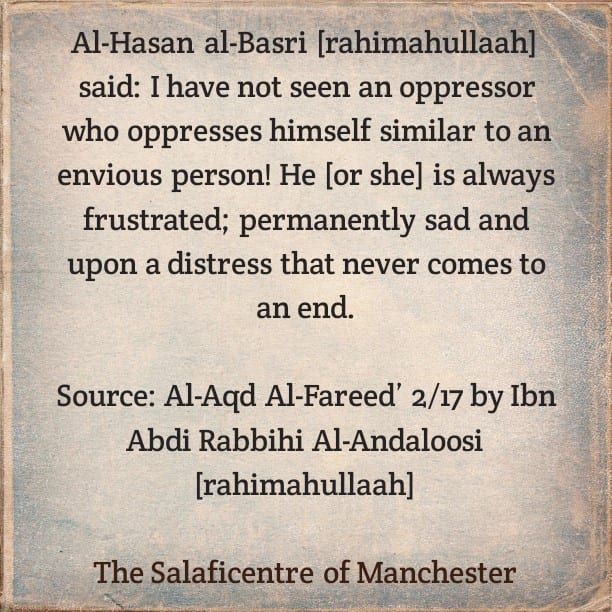Kitaab An-Nikaah, Saheeh Bukhaari Vol: 7; Hadith Number:5065
Chapter: The Statement of the Prophet (sallal’laahu’alayhi’wasallam)
‘Whoever is able to marry, should marry, for that will help him lower his gaze and guard his modesty (i.e. his private parts from committing illegal sexual intercourse etc.).’ And should a person marry (even if) he has no desire for marriage?
Narrated ‘Alqamah:
“While I was with Abdullaah, uthman met him at Mina and said, ‘O Abu Abdur-Rahmaan! I have something to say to you.’ So both of them went aside and uthmaan said, ‘O Abu Abdur-Rahmaan! Shall we marry you to a virgin who will make you remember your past days? When Abdullaah felt that he was not in need of that, he beckoned me (to join him) saying, ‘O Alqamah’ Then I heard him saying (in reply to uthmaan), ‘As you have said that, (I tell you that) the Prophet (sallal-laahu-alayhi-wasallam) once said to us, ‘O young people! Whoever among you is able to marry, should marry, and whoever is not able to marry, is recommended to observe fast as fasting will diminish his sexual power’.
Imaam Abdul Azeez Bin Baaz, may Allah have mercy upon him, said: “Therefore, getting married is the correct (thing to do) as an obligation for the one who has shahwa (sexual desire) even if he does not fear falling into Zinaa, and this is with regards to the one whose situation allows him to get married. This (demonstrates) Uthman’s righteous moral conduct and that the elderly person can get married as long as he has the strength for sexual relations; and those mainly intended in this hadith are the young people because in most cases they possess greater desires and are more in need of that (fulfilling their desires).” [Source: Al-Hulalul Ibreeziyyah Min At-Taleeqaat Al-baaziyyah Alaa Saheeh Al-Bukhaaree Volume 4; Hadith No:5065; Footnote Number 2]
The Importance of Marrying Someone with Deen
Narrated Abu Hurairah (radiyallaahu-anhu): The Prophet, peace and blessings of Allah be upon him, said:
“A woman is married for four (reasons/things); her wealth, her family status, her beauty and her religion. So you should take possession of the one with Religion, otherwise you will be a loser”. [Bukhaari Vol 7. No:5090]
Narrated Sahl:
A man passed by Allah’s Messenger, and Allah’s Messenger asked (his companions), “What do you say about this man?” They replied, “If he asks for a lady’s hand, he ought to be given her in marriage; and if he intercedes (for someone), his intercession will be accepted; and if he speaks, he will be listened to”. Allah’s Messenger kept silent, and then another man from the poor Muslims passed by, and Allah’s Messenger asked (them), “What do you say about this man?” They replied, “If he asks for a lady’s hand in marriage, no one will accept him, and if he intercedes (for someone), his intercession will not be accepted; and if he speaks, he will not be listened to”. Allah’s Messenger said, “This poor man is better than so many of the first as to fill the earth”. [Hadith No:5091]
Imaam Abdul Azeez Bin Baaz, may Allah have mercy upon him, said: This clarifies that what matters is the religion (of a person) and not wealth and status……and all those (men) were from the Sahabah.
Narrated Said Bin Jubair:
Ibn Abbas asked me, “Are you married?” I replied, “No” He said, “Marry, for the best person of this Ummah (i.e. Muhammad) had the largest number of wives.”
Imaam Abdul Azeez Bin Baaz said: If a person marries (several women) to protect himself from (Zina) and for an increase in numbers of children, there is no harm in this, but not for playing about. Shaikh Al-Islam Ibn Taymiyyah stated in Majmoo Al-Fataawaa: “If the need for divorce is not called for, the the proof necessitates that it is forbidden as demonstrated by the narrations and the fundamental principles; but Allah has permitted divorce out of mercy from Himself due to the slaves need of it at times; and He made it forbidden in (certain) instances. [Source: Al-Hulalul Ibreeziyyah Min At-Taleeqaat Al-baaziyyah Alaa Saheeh Al-Bukhaaree Volume 4; Hadith Number:5069. Footnote Number 3]
Chapter: To Marry Virgins Vol 7 Hadith Number:5077
Narrated Aisha:
I said, “O Allaah’s Messenger! Suppose you landed in a valley where there is a tree of which something has been eaten and then you found trees of which nothing has been eaten, of which tree would you let your camel graze?” He said: “I will let my camel graze of the one of which nothing has been eaten before”. The sub narrator added: “Aisha meant that Allah’s Messenger, peace and blessings of Allah be upon him, had not married a virgin besides herself.”
Imam Abdul Azeez Bin Baaz stated: In this is an encouragement to marry a virgin/virgins, for she has not been put to any trial by the people and this is more likely to (bring about) harmony between her and her husband; except when the need calls for other than that (i.e. when a man marries other than a virgin as occurs in the story of Jabir when he married a matron in order that she can help look after his very young sisters).
[Source: Al-Hulalul Ibreeziyyah Min At-Taleeqaat Al-baaziyyah Alaa Saheeh Al-Bukhaaree Volume 4; Hadith Number: 5077; Footnote:3]
Chapter: The Marrying Of A Young Lady To An Elderly Man
Narrated Urwa:
The Prophet asked AbuBakr for Aisha’s hand in marriage. AbuBakr said, “But I am your brother”. The Prophet said, “You are my brother in Allah’s Religion and His Book, but she (Aisha) is lawful for me to marry”. [Hadith No:5081]
Imaam Abdul Azeez Bin Baaz said: This shows that brotherhood for Allah’s Sake and friendship does not prevent (a person from marrying the daughter of his friend). What is forbidden for a person is to marry relatives forbidden for him.” [Source: Al-Hulalul Ibreeziyyah Min At-Taleeqaat Al-baaziyyah Alaa Saheeh Al-Bukhaaree Volume 4; Footnote Number:1]



